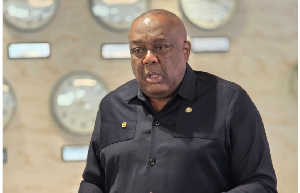The Member of Parliament (MP) for the Afram Plains North Constituency in the Eastern Region, Betty Krosbi Nana Efua Mensah, has expressed concerned how child trafficking and child labour are perceived in Ghana.
She is of the view that, there needs to be a broader conversation and education about what passes to be child labour or child trafficking taking into consideration the background and culture of the people.
According to the legislator, speaking on TV3’s New Day, Madam Betty told Berla Mundi cultural practices that allow families to pass on wealth and skills onto generations have often been misconstrued as child labour and child trafficking.
“We have certain cultural practices that protected our families, that helped us pass our wealth onto our children, our skills to our children. Are we losing those attributes and going by international standards”? he quizzed.
She said she doesn’t mind championing a cause that will see to the amendment of the law to factor in some of the cultural considerations that are not necessarily injurious to the child but mere ‘training’.
“That’s why I’m in parliament, to bring [up]some of these challenges so that even if there is the need to for us to amend the children’s right, then we need to do that”, she said.
The MP argues that the current structure of the law only criminalizes poor families without regard for the trade or skills which parents or guardians pass on to their children as a means of survival.
She insists it is extreme for children deemed to be abused to be ‘arrested’ by NGOs when their destinations are not known and their welfare not guaranteed.
“We shouldn’t start from the very end, by arresting these children, not knowing where we are taking them in the first place, I think it’s an issue of concern”, she observed.
Though she concedes that when child are made to work under conditions injurious to their health and well being it amounts to child labour, she explains that is not always the case with what is often put out there by some NGOs as incidents of child labour.
She questions what the alternatives are for children who are often taken away from societies under the guise of rescuing them from child labour or child trafficking when there not schools in some places. there is a surge in the ‘rescue’ of children supposedly engaged in laborious work, especially in her constituency, when it is in fact not the case that the children are trafficked.
General News of Thursday, 30 July 2020
Source: 3news.com













